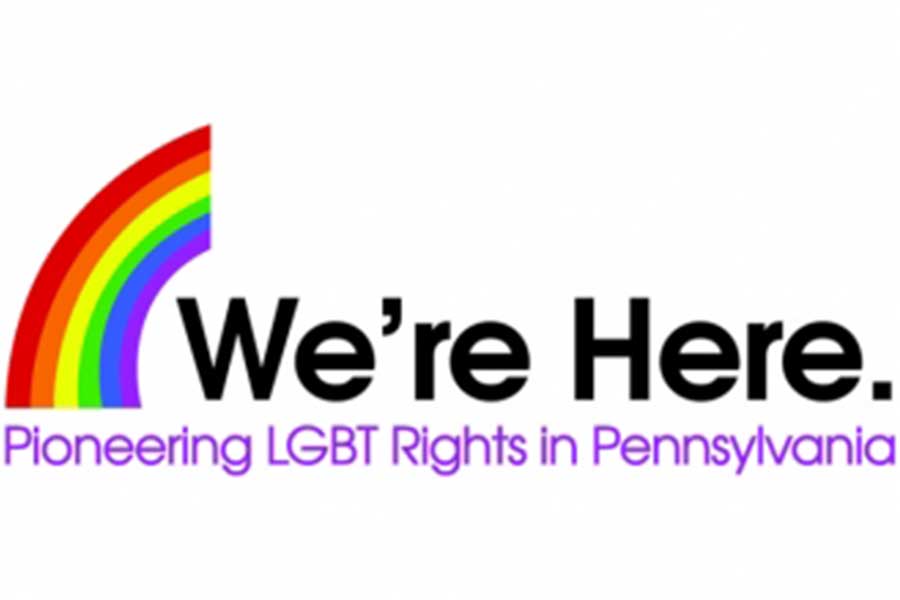Two years ago, Jason Landau Goodman heard whispers about a Council for Sexual Minorities established through the governor’s office. He took a trip to the tall concrete slab that houses the state’s historical documents in Harrisburg. The staff pulled records from Gov. Milton Shapp’s administration in 1976, revealing meeting minutes and letters pertaining to the council.
“It’s very powerful and meaningful that the state kept them,” said Landau Goodman, founding executive director of the Pennsylvania Youth Congress. But he noted the discovery showed “we don’t teach our history in the LGBT community, certainly not well or with intention.”
He partnered with the LGBT History Project at the LGBT Center of Central PA to shine a light on the early activism. People are invited to learn more about the Council for Sexual Minorities, which celebrates its 40th anniversary this year, at an event that takes place from 6-8 p.m. April 12 at the State Museum of Pennsylvania, 300 North St., Harrisburg.
At least a dozen original members of the council plan to attend, said Barry Loveland, chairman of the LGBT History Project. That lineup includes Dr. Anthony Silvestre, former chairman of the council. Other notables are Samuel Deetz, former chairman of the Gay Rural Caucus, and Mark Segal, publisher of PGN.
An exhibit called “We’re Here: Pioneering LGBT Rights in Pennsylvania” will open in conjunction with the anniversary event and runs through Oct. 30. It’s the first time the State Museum has featured an LGBT exhibit.
“We have a rich history of LGBT advocacy in Pennsylvania,” Landau Goodman said. “There are incredible activists who’ve been forgotten by many. We need to say, ‘Your sacrifice was meaningful.’”
He said the council discussed rural versus urban representation and movement priorities. Members talked about marriage for same-sex couples, a goal that was realized last summer. The council also wanted to move state legislation for nondiscrimination and make schools more affirmative environments for LGBT students. Work in those areas remains ongoing.
The council formed out of a meeting Shapp had with Segal and Harry Langhorne, politics reporter for PGN in its early days. Segal said he was surprised the governor agreed to meet with him in the first place, much less that he would immediately agree to create a Council for Sexual Minorities.
“It was the first time any governor in the United States of America had ever met with a gay activist or an out gay man publicly,” Segal said. “I requested the governor’s council, which no one had ever thought of before because there’d never been anything like a governmental body just to look into the problems that LGBT people have with government.”
Segal said he and Langhorne prepared for the meeting by talking about ways that state officials could help LGBT people.
“We didn’t really figure it out until we actually got into the meeting and all of a sudden I just sprang it on the governor,” Segal said. “He said, ‘Write me up a proposal.’”
About a year of meetings of the ad-hoc Governor’s Gay Rights Task Force followed before the council was officially organized with appointed members. By 1976, about 30 people from the LGBT community across Pennsylvania were meeting regularly with representatives from eight major state agencies. Segal remembered the meetings were run very conservatively with Robert’s Rules of Order.
Segal said he’s proud of the accomplishments of the council, including getting the state police to accept openly gay cadets. He looks forward to celebrating the legacy of the council, which ran in earnest through the end of Gov. Dick Thornburg’s administration in 1987.
While campaigning for governor in 1986, Bob Casey Sr. told PGN he would continue the Council for Sexual Minorities. But he neglected to reappoint its members when he took office.
“I’ve thought for a long time that we need to reconstitute the council or create some similar office in state government that serves as a liaison for the LGBT community,” said Loveland of the LGBT History Project. “There’s so much more work that needs to happen to make sure services are delivered in a nondiscriminatory way.
“There’s definitely a missing component there,” he added.
Loveland said he hopes young activists would come to the council anniversary event to learn about the work that had been done in the past. He said that would help them inform their work going forward.
Landau Goodman shared that view. He said his work advocating with young LGBT people has become richer since he started his research at the state archives.
“I don’t just say the state of LGBT rights today, but I talk about the landscape,” he said.
Landau Goodman also spearheaded the organization of a Steering Committee this year, which brings together LGBT grassroots organizers from across the state to coalesce the voice of LGBT Pennsylvania. He considers the group a “spiritual offspring” of the Council for Sexual Minorities.
